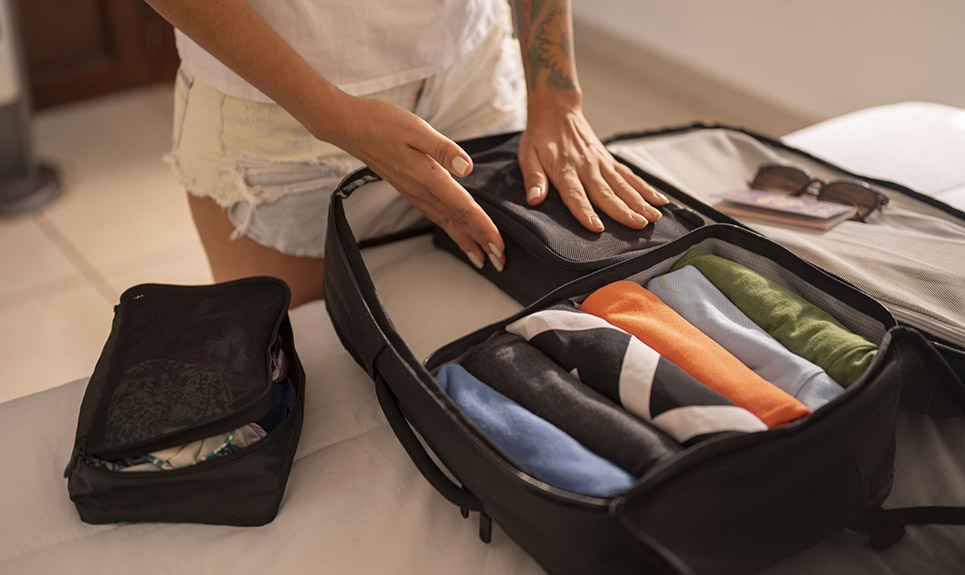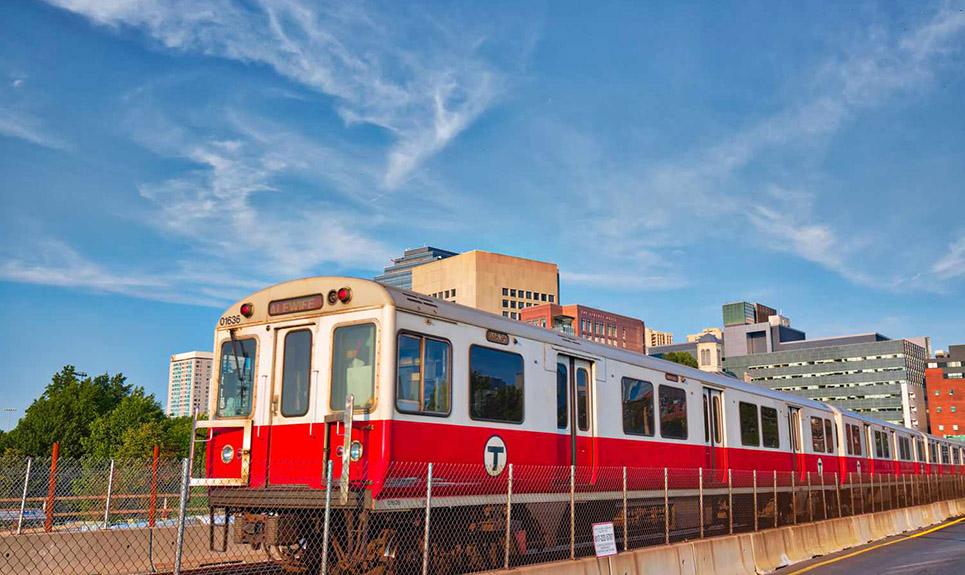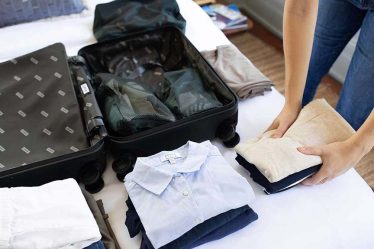
Boston is a city that blends historical charm with modern vibrancy, making it a must-visit destination for travelers. From the cobblestone streets of Beacon Hill to the cutting-edge innovation hub of Cambridge, there is something for everyone in this bustling metropolis.I’ve had the pleasure of exploring Boston in-depth, and I’m excited to share my top travel tips to ensure you have a safe and enjoyable trip. This comprehensive guide covers everything from essential packing lists and understanding local culture to navigating the public transportation system and finding the best street food.
Packing Essentials for a Boston Trip
Clothing and Weather Considerations
Boston experiences four distinct seasons, each with its own weather patterns. Here’s a breakdown to help you pack accordingly:
- Spring (March to May): Pack layers, including light jackets, sweaters, and waterproof gear. Temperatures can range from cool to mild, with occasional rain.
- Summer (June to August): Light, breathable clothing is essential. Bring shorts, t-shirts, a hat, sunglasses, and sunscreen. Boston summers can be hot and humid.
- Fall (September to November): Fall in Boston is beautiful, with crisp air and vibrant foliage. Pack layers, including long sleeves, sweaters, and a medium-weight jacket. Don’t forget comfortable walking shoes.
- Winter (December to February): Winters can be cold and snowy. Pack a heavy coat, gloves, scarves, hats, thermal wear, and waterproof boots.
Other Essential Items
- Travel Documents: Ensure you have your ID, passport, visa (if applicable), and copies of important documents.
- Electronics: Camera, phone, charger, power bank, and a travel adapter for international visitors.
- Personal Care Items: Toiletries, medications, and a small first aid kit.
- Reusable Water Bottle: Stay hydrated while exploring the city.
- Travel Guides and Maps: Although digital maps are handy, a physical map can be useful if your phone battery dies.
Understanding Local Culture
Boston’s Unique Blend
Boston is a city of neighborhoods, each with its own distinct character. Here are some cultural highlights:
- Historical Significance: Boston played a key role in American history. Sites like the Freedom Trail, Paul Revere’s House, and the Boston Tea Party Ships & Museum reflect its revolutionary past.
- Academic Hub: Home to prestigious institutions like Harvard and MIT, the city has a vibrant academic and intellectual atmosphere.
- Sports Enthusiasm: Bostonians are passionate about their sports teams, including the Red Sox, Celtics, and Bruins. Catching a game at Fenway Park is a quintessential experience.
- Diverse Cuisine: Boston’s food scene is diverse, with influences from Irish, Italian, and other immigrant communities.
Local Etiquette
- Politeness: Bostonians are generally polite but reserved. A friendly “hello” or “thank you” goes a long way.
- Tipping: It’s customary to tip 15-20% in restaurants and for services like taxis and haircuts.
- Public Behavior: Keep your voice down in public places and be mindful of personal space.
Currency and Budgeting Tips
Currency Exchange
The currency in Boston is the US Dollar (USD). Here are some tips for exchanging money:
- ATMs: Convenient and usually offer competitive exchange rates. Look for ATMs at banks or inside reputable locations.
- Currency Exchange Offices: Available at airports and major tourist areas but often come with higher fees.
- Credit Cards: Widely accepted. Inform your bank of your travel plans to avoid any issues.
Budgeting
Boston can be expensive, but with careful planning, you can manage your budget effectively:
- Accommodation: Look for budget-friendly options like hostels, Airbnb, or budget hotels. Staying outside the city center can also save money.
- Food: Enjoy street food and food trucks for affordable meals. Explore local markets and grocery stores for snacks and drinks.
- Attractions: Many historical sites are free or have a low admission fee. Consider getting a CityPASS for discounted entry to popular attractions.
- Transportation: Use public transportation instead of taxis or rideshares.
Navigating Boston’s Public Transportation
The MBTA System
Boston’s public transportation system, known as the MBTA (Massachusetts Bay Transportation Authority), includes subway, bus, and commuter rail services. It’s a cost-effective way to get around the city.
Subway (The “T”)
The subway, or “T,” is the most efficient way to travel within Boston. The system is divided into several lines, each identified by a color:
- Red Line: Connects Cambridge, downtown Boston, and the southern suburbs.
- Green Line: Serves the areas west of downtown, including Boston University and Boston College.
- Blue Line: Runs from downtown Boston to the airport and the northeastern suburbs.
- Orange Line: Covers the north and south of downtown.
- Silver Line: A bus rapid transit line that connects downtown Boston to the Seaport District and Logan Airport.
Purchasing a CharlieCard
A CharlieCard is a reusable card that offers discounted fares on the MBTA. Here’s how to get one:
- Obtain a Card: You can get a CharlieCard at major subway stations or the MBTA’s customer service center.
- Load Funds: Add money to your card at vending machines in subway stations or online.
- Use the Card: Simply tap the card on the reader at the turnstiles or bus entrances.
Comparing the MBTA to Other Systems
The MBTA is comparable to other major city transit systems in terms of convenience and coverage. It’s not as extensive as New York City’s subway but is well-integrated and easy to use, especially for tourists.

Street Food Recommendations and Safety Tips
Popular Street Food
Boston’s street food scene is vibrant and diverse. Here are some must-try options:
- Lobster Rolls: Fresh, succulent lobster meat served in a toasted roll. Try one from a food truck at the Boston Public Market.
- Clam Chowder: A creamy, hearty soup made with clams, potatoes, and onions. Look for vendors at Quincy Market.
- Fenway Franks: Classic hot dogs served at Fenway Park, perfect for a quick snack during a Red Sox game.
- Italian Cannoli: Crispy pastry shells filled with sweet ricotta cream. Mike’s Pastry in the North End is famous for this treat.
- Boston Cream Pie: Although more of a dessert than street food, this delicious cake is a must-try. Look for bakeries offering slices to go.
Street Food Safety Tips
- Choose Busy Vendors: High turnover means fresher food.
- Check Hygiene: Ensure the vendor is wearing gloves and the food is properly covered.
- Look for Reviews: Check online reviews or ask locals for recommendations.
- Stay Hydrated: Always carry a bottle of water, especially when trying rich or salty foods.
Getting a Local SIM Card
Why You Need One
Having a local SIM card is essential for navigation, staying connected, and accessing information on the go. Here’s how to get one:
Where to Buy
- Airport Kiosks: Convenient but often pricier.
- Mobile Stores: Major carriers like AT&T, T-Mobile, and Verizon have stores throughout the city.
- Convenience Stores: Many offer prepaid SIM cards from various providers.
Activation Process
- Purchase the SIM Card: Choose a plan that suits your data needs.
- Insert the SIM Card: Follow the instructions to insert it into your phone.
- Activate the Card: Usually requires a phone call or online registration.
Recommended Plans
- T-Mobile Tourist Plan: Offers a good balance of data and talk time for short-term visitors.
- AT&T Prepaid: Flexible plans with good coverage.
- Verizon Prepaid: Reliable service and a variety of options.
Insurance Recommendations
Why Travel Insurance is Important
Travel insurance is more than just a safety net; it’s a crucial component of trip planning that can provide peace of mind and financial protection against unforeseen events. Here’s why having travel insurance is essential:
- Medical Emergencies: Health issues can arise unexpectedly, whether it’s an injury from an accident or an illness. Travel insurance often covers medical expenses that may not be included in your regular health insurance policy, especially if you’re traveling abroad.
- Trip Cancellations: Sometimes, plans change due to unforeseen circumstances such as family emergencies, work obligations, or natural disasters. Travel insurance can reimburse you for non-refundable expenses if you have to cancel or cut short your trip.
- Lost or Delayed Luggage: Losing your luggage or having it delayed can be incredibly stressful. Insurance can help cover the cost of replacing essential items and the inconvenience caused by such disruptions.
- Travel Delays: Delays in flights or other transportation can lead to extra costs for accommodation, meals, and other expenses. Travel insurance can cover these additional costs if the delay is beyond your control.
- Emergency Evacuation: In the event of a serious health issue or natural disaster, emergency evacuation coverage can ensure you get the necessary transportation and care, which can be prohibitively expensive without insurance.
Recommended Insurance Plans
When choosing travel insurance, it’s essential to select a plan that fits your needs, travel style, and destination. Here are some highly recommended travel insurance providers, each offering unique benefits:
1. World Nomads
- Coverage: World Nomads offers extensive coverage suitable for adventurous travelers. This includes medical emergencies, trip cancellations, and coverage for activities like hiking, skiing, and diving. It’s known for its flexibility and ability to cover a wide range of activities.
- Features:
- Medical Coverage: Comprehensive medical expenses, including emergency evacuation.
- Trip Cancellation: Reimbursement for non-refundable expenses if you need to cancel your trip.
- Adventure Sports: Coverage for various adventure sports and activities.
- 24/7 Assistance: Around-the-clock customer support to help with emergencies or claims.
- Pros: Excellent for those engaging in adventure travel; high coverage limits.
- Cons: Can be pricier than basic plans; might be more than needed for less adventurous travelers.
- Website: World Nomads
2. Allianz Travel Insurance
- Coverage: Allianz provides a range of plans tailored to different needs, from basic to comprehensive coverage. It includes benefits such as trip interruption, baggage loss, and 24/7 assistance.
- Features:
- Trip Interruption: Covers non-refundable expenses if your trip is interrupted.
- Baggage Loss: Compensation for lost or stolen baggage.
- 24/7 Assistance: Access to emergency assistance anytime, anywhere.
- Pre-Existing Conditions: Some plans offer coverage for pre-existing medical conditions if purchased within a certain time frame.
- Pros: Reliable customer service; flexible coverage options.
- Cons: Higher-end plans can be expensive; basic plans may lack extensive coverage.
- Website: Allianz Travel Insurance
3. Travel Guard
- Coverage: Travel Guard offers a variety of coverage options, including emergency medical, trip cancellation, and rental car damage. The plans can be customized based on individual needs.
- Features:
- Emergency Medical: Coverage for medical expenses and emergency evacuation.
- Trip Cancellation: Reimbursement for trip costs if you need to cancel.
- Rental Car Damage: Coverage for damage to rental cars.
- 24/7 Customer Support: Access to support and claims assistance.
- Pros: Customizable plans; good for travelers who need specific coverage like rental car insurance.
- Cons: Can be complex to navigate the various plan options; may require more research to find the best fit.
- Website: Travel Guard
4. InsureMyTrip
- Coverage: InsureMyTrip is a comparison site that allows you to compare various travel insurance plans from different providers. It’s an excellent resource for finding a plan that meets your specific needs and budget.
- Features:
- Comparison Tool: Compare plans from multiple insurance providers.
- Plan Reviews: Read detailed reviews and ratings from other travelers.
- Customizable Options: Find plans that match your travel preferences and requirements.
- Pros: Simplifies the process of finding and comparing insurance; broad selection of providers.
- Cons: As a comparison site, it may not provide the same level of customer support as dedicated insurers.
- Website: InsureMyTrip

Final Tips for Choosing Travel Insurance
- Assess Your Needs: Consider factors such as your destination, activities planned, and any pre-existing medical conditions.
- Compare Plans: Use comparison tools to find the best coverage for your specific needs and budget.
- Read the Fine Print: Understand the exclusions and limitations of your policy before purchasing.
- Purchase Early: Buy insurance as soon as you book your trip to ensure coverage for trip cancellations or interruptions.
- Check Reviews: Look at customer reviews for insights into the insurer’s service and claims process.
Travel insurance is a wise investment that can save you from unexpected expenses and provide peace of mind during your journey. By choosing the right plan and understanding its coverage, you can travel with confidence and enjoy your trip without unnecessary worries.
With these tips and insights, you’re well-prepared to enjoy a memorable and hassle-free trip to Boston. Safe travels and enjoy all that this historic city has to offer!



